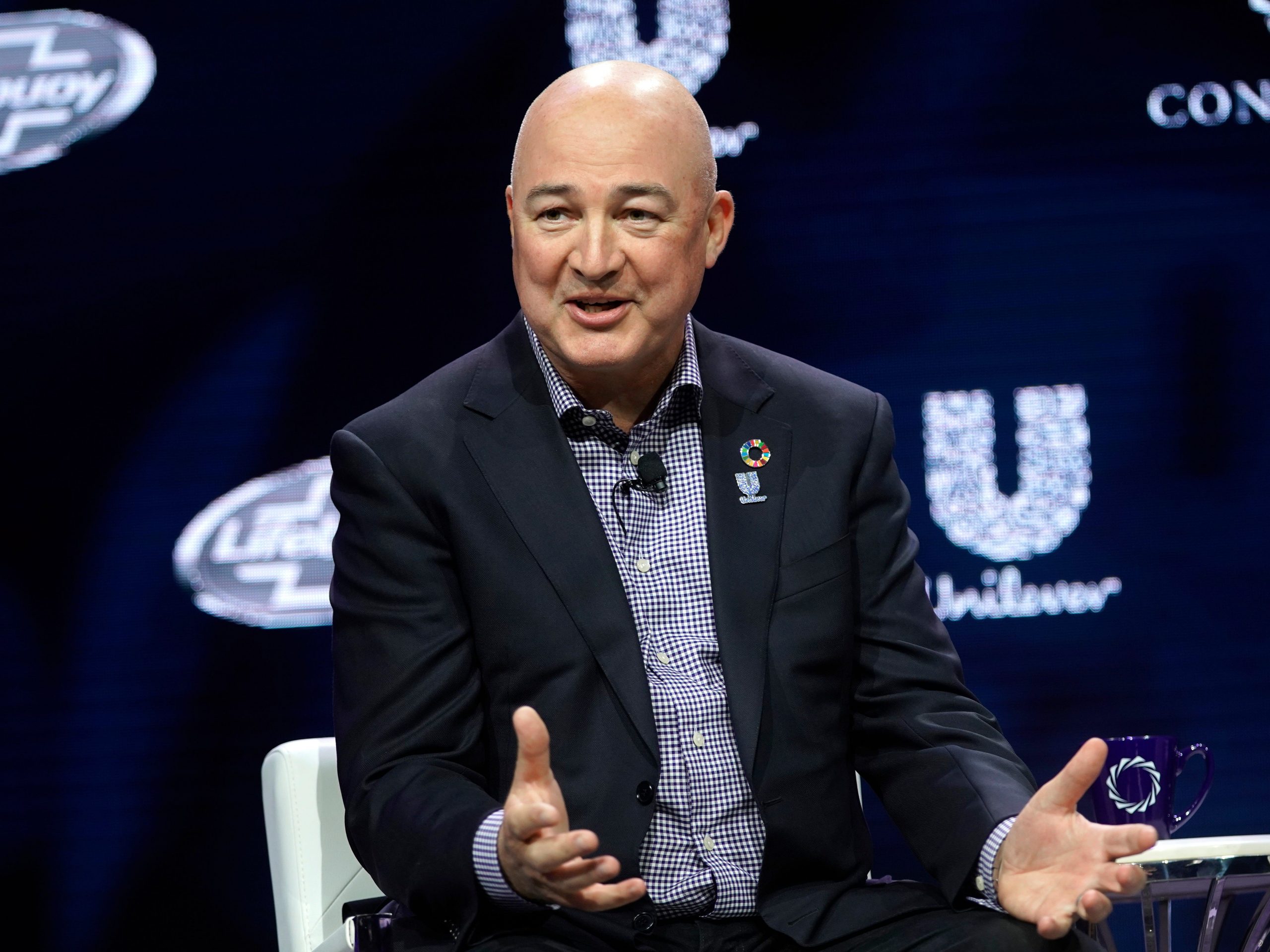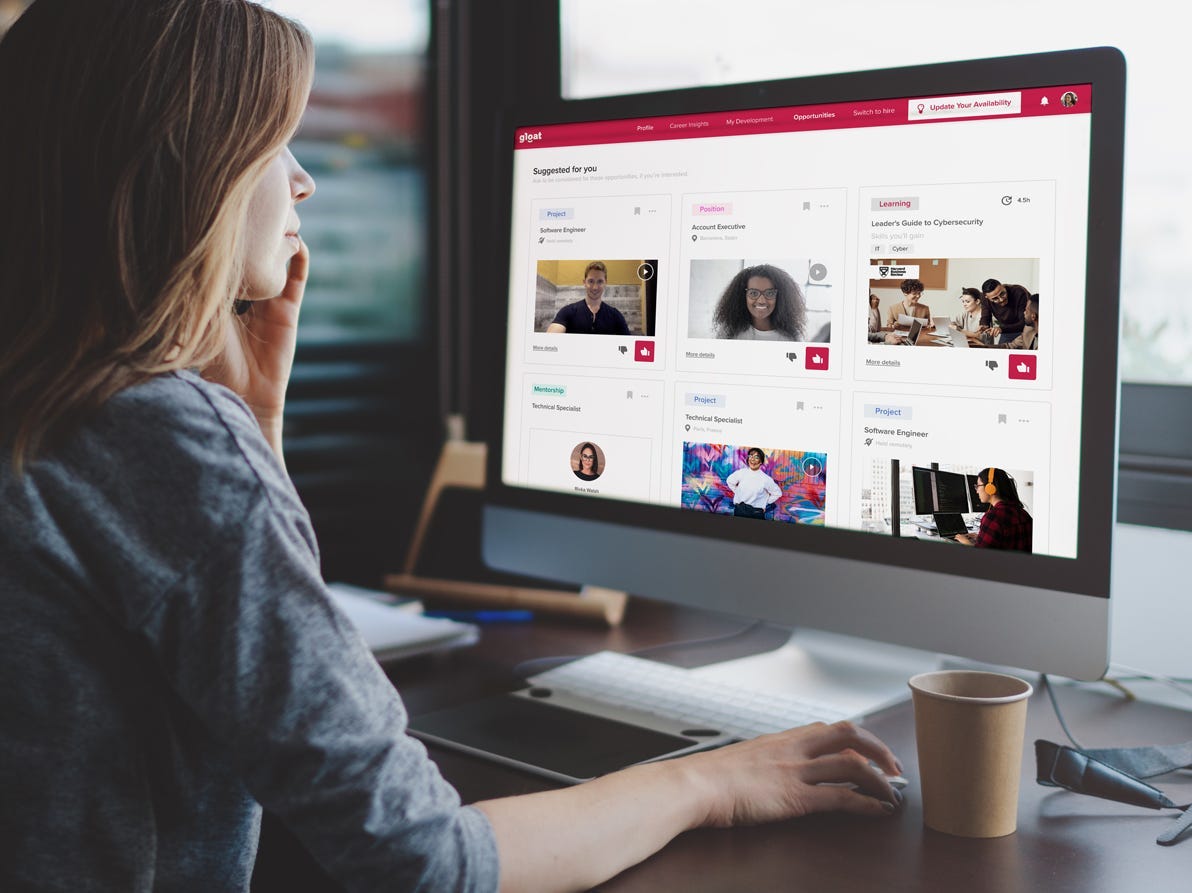
Unilever
- Unilever is investing in full-time jobs for project-based work and flexible part-time opportunities.
- Using an internal platform, employees can help out on different projects across the organization.
- The company is rethinking roles, structures, and departments as a result.
- This article is part of a series called "Future of Work," which examines how business leaders are rethinking the workplace.
Vanessa Otake started working at Unilever in 2003. She is an engineer by training, and worked in technically-focused research and development (R&D) roles before making a sharp turn into HR, as a diversity and inclusion lead overseeing gender equity.
While that kind of move may seem uncommon for an engineer, Otake was well-prepared for this mid-career shift. She knew the D&I team well and felt she had a good understanding of their day-to-day responsibilities. The team already understood what she brought to the table and was eager to have her on board, and it wasn't because they were happy hour buddies.
This happened because Otake took advantage of Unilever's flex-work program to pursue a D&I project while still in her full-time R&D role. Otake told Insider the flex experience opened doors and gave her the confidence to pursue this new job, which she said has reinvigorated her.
Offering opportunities such as this benefits companies in many ways, as leaders at places like Spotify, Deloitte, and Unilever are learning. People can explore new parts of the business, contribute in different ways, and develop new skills and passions.
"Now that I'm in this role, I feel like a kid in a sweet shop," she said. "I'm back into learning again, growing again, and being able to grow with something that I'm really passionate about."

Unilever
The benefits of a well-developed talent mobility strategy
Using an internal system, managers at Unilever can solicit help for projects from anyone in the company. After writing it up and posting the project on the platform, they field applications from colleagues who are empowered to dedicate approximately 15-20% of their time to support this kind of work.
"Not only do they find a resource who's keen and excited to do it but then often they also find that they get someone who's bringing a wonderful different perspective that they wouldn't have had from their normal team," Patrick Hull, vice president, future of work, at Unilever, told Insider.
Hull added that the company has been doing this for about 10 years, and recently invested in a platform provided by software company Gloat to bring more speed and efficiency to this internal talent marketplace. Since they launched their pilot in early-2018, they've had over 4,000 projects completed.
Unilever benefits from this strategy on many fronts: productivity, engagement, career path-enablement, and skill development. This initiative is part of a few major efforts Hull is undertaking to develop new employment models for the global, 155,000-person company. Flex-work is a centerpiece of the company's talent mobility strategy, and it's also helping Unilever better understand the capabilities of its employees.
"There's a huge benefit that we can unlock capacity in the organization by having people from different functions and departments, even different countries, working on critical projects in the organization," Hull said. Flex-work can also be helpful for retraining those whose jobs may be eliminated due to automation. During the pandemic, flex opportunities helped the company redeploy people to help meet the rising demand for hygienic goods.
Hull himself recently took on a flex role coaching managers in China.
"I previously worked in China, a few years ago, and when that opportunity came up I just thought, for me it was a wonderful way I could give back," he said, adding that the Chinese team was happy to have a senior leader from company headquarters on their manager training initiative. "They were getting more than what they bargained for."
Institutionally, promoting flex opportunities and talent mobility aligns with Unilever's commitment to helping employees find their passion and purpose. Otake said the company's purpose workshop helped her identify her passion for gender equity, which led her to pursue the D&I flex job. Hull said around 60,000 employees have taken that workshop since 2018.
Unilever has also introduced U-work, which Hull calls a "responsible alternative to the gig economy." It's a full-time employment contract where the workers' entire job consists of project work across the company and is expected to be available in 10 countries by the end of this year after being launched in the UK in 2019.
Hull said that while he initially thought working parents and others with caregiving responsibilities would be the ones most interested in this flexible model, other takers have emerged such as part-time students, people with side-businesses, and those easing into retirement.

Gloat
Focusing on skills helps break down silos
Flex opportunities and U-work allow employees to find new career interests or enjoy newfound flexibility. It's a model that acknowledges many trending changes in the employment climate including peoples' demands for more flexibility.
Ben Rueveni, founder of Gloat, the platform used by Unilever, Deloitte, and ADP to support employers' internal mobility efforts, started his company because he received a flex opportunity the old-fashioned way. He asked for the opportunity and had to get multiple managers to carve out time from his primary job.
"All of these hierarchies, that corporations are used to, create silos," Rueveni told Insider. "It creates people that are not aligning with business goals, with the top line. That's I think what is broken right now, that's what we are trying to fix."
Rueveni was later working at IBM, and found it unusual that it was easier for him to pursue jobs at other companies rather than internal opportunities if he wanted to take his career in a slightly different direction. This time, he found a way to get his own flex opportunity. But ultimately he set out to fix the problem.
"When everyone is really focused and has this structure of doing what they should do and only that, that that creates less utilization, a less productive environment that is not very agile," he explained.
By looking at people with the skills they carry rather than the job titles they've held, it starts to make job titles and departments almost seem obsolete. Companies can be much more interconnected and also get more productivity out of their people by encouraging skill sharing and development.
"We just see that there's all this opportunity that we can unlock for people that maybe we wouldn't have been considering because, as with many organizations, we would have been more in our functional silos," Hull explained. "Now we're doing much more research into skill adjacencies," and he said departmental work is increasingly "being divided up into projects and tasks and deliverables."
Hull said he sees siloed departments breaking down in the future and a more granular method of viewing employees' contributions to the company, focused on outputs and skills rather than years with a job title to understand what an employee brings. His job is to make sure the workforce inspires employees and benefits the company bottom line, and he sees the underlying strategy of cataloging employee skills and finding smarter ways to use them as key to the company's future.
"When you can get to that level of detail, you can get much more targeted in your recruitment, in your internal mobility of talent, and applying the right talent to the right tasks and projects, and thereby also accelerate business performance," he said.
Unilever CEO Alan Jope mentioned the success of these efforts in the company's latest earnings call.
"Agile ways of working are allowing us to redeploy both temporary and permanent resource to support our strategic priorities," he said. "By leveraging automation and by driving digital transformation, we can release capacity in areas of the business that focus on repeatable transactions."
